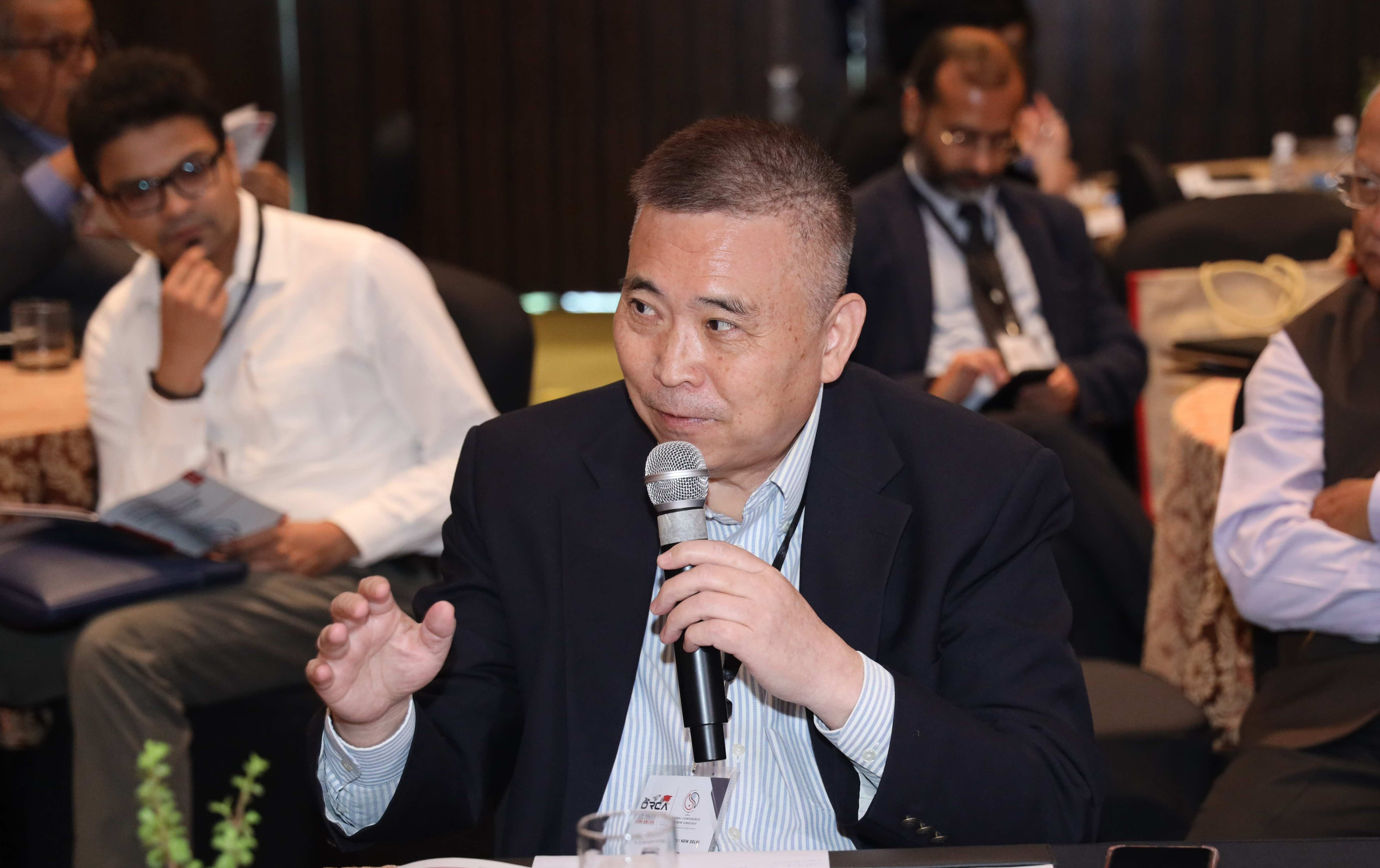There is a prevailing notion that the PLA is making a transition from the Party’s army to Xi Jinping’s army, which may not be the case. The PLA would pledge personal loyalty to Xi since Xi has the power to make critical decisions on the appointment and promotion of senior PLA officers and on defence budget. But they would refrain from pledging such loyalty to Xi when there is a power struggle within the party leadership and Xi’s power is challenged. They will shift their loyalty to whoever wins the power struggle.
On how Xi Jinping controls the military, he relies on three mechanisms. The first is the formal institution of political commissars. In theory, political commissars are externally imposed on the PLA to monitor the latter for political loyalty and discipline and report back to the civilian party authorities. In reality, however, political commissars are internalized into the PLA, as they are subjected to the incentive structure of the PLA, including its military rank, bureaucratic grade, and pay scale systems. They report to the military chain of command but never to civilian party authorities. The monitoring or supervisory function of the political commissars as a result has been compromised. Rather than investigating the wrongdoings of the PLA, political commissars are incentivised to collude with the commanders to cover up these wrong doings, including military corruption, to improve the prospect of promotion. Xi Jinping’s anti-corruption campaign, for instance, reveals there are as many political commissars as military, logistical and armament officers who are investigated for corruption. Political officers therefore are not more communistic and less corruptible than other types of officers.
In Xi’s military reform, the disciplinary inspection apparatus has been separated from the traditional political commissar system and given more authority and independence to do the monitoring or supervisory work. The traditional political commissars have been reoriented toward political education to enhance troop morale. They are also more dedicated to political warfare.
Political commissars have been retained in the PLA largely because they embody the legacy of political warfare in China’s Civil War, where 1.5 million KMT soldiers surrendered to the PLA, a legacy of winning without fighting.
The second mechanism for Xi to control the PLA is the informal personal networks that he could count on for political support in the PLA. Xi’s personal networks in the PLA are quite weak and limited largely because he spent only three years of his career in the PLA, serving as an aide to the then defence minister; he never commanded a unit. Xi did not have the opportunity to cultivate a large personal network within the PLA. The Party and military have been largely bifurcated in the post-Deng era. Hu Jintao and Jiang Zemin also had weak personal networks in the military since they have never served in the PLA.
Xi appointed Fang Fenghui and Zhang Yang, the two senior PLA officers as the chief of the PLA General Staff Department and the director of the PLA General Political Department in 2012, the two most important positions in the PLA. Both were investigated for corruption after holding these positions for five years. Only a few months after he appointed a new defence minister and commanding officers of the PLA Rocket Force in 2023, all were placed under investigation for corruption. These instances show that Xi does not know senior PLA officers well and does not have strong informal personal networks in the PLA that he could trust.
The final mechanism that Xi relies on to control the PLA is what Samuel Huntington calls “objective control,” or confining the PLA to perfecting its functional and technical expertise. China’s official statements highlight the “absolute” loyalty of the PLA to the party and the “absolute” leadership of the PLA by the party, but they also require the PLA to train to fight and win wars. For example, major commentaries in Liberation Army Daily would have the first paragraph stressing the absolute leadership of the party over the PLA, but this is only nominal. The second paragraph would talk about training in war-like conditions. Unlike the Maoist era, the party has not required the PLA to participate in intra-party leadership power struggles for decades. “Objective control” seems to be the most effective way for the party to control the PLA.
To conclude, political commissars are not an effective mode of control because they are internalized and corrupted. Moreover, Xi Jinping does not have extensive and entrenched personal networks in the PLA to enforce personalized control of the military. It is objective control that has become more important for the party to control the PLA.



Author
Dr. Li Nan
Dr. Li Nan is Visiting Senior Research Fellow at the East Asian Institute, National University of Singapore. He has published extensively on Chinese security and military policy and on China’s maritime development. His most recent book, entitled Civil-Military Relations in Post-Deng China: From Symbiosis to Quasi-Institutionalization, was published by Palgrave Macmillan in 2021. He was a professor at the US Naval War College and received a PhD in political science from the Johns Hopkins University.